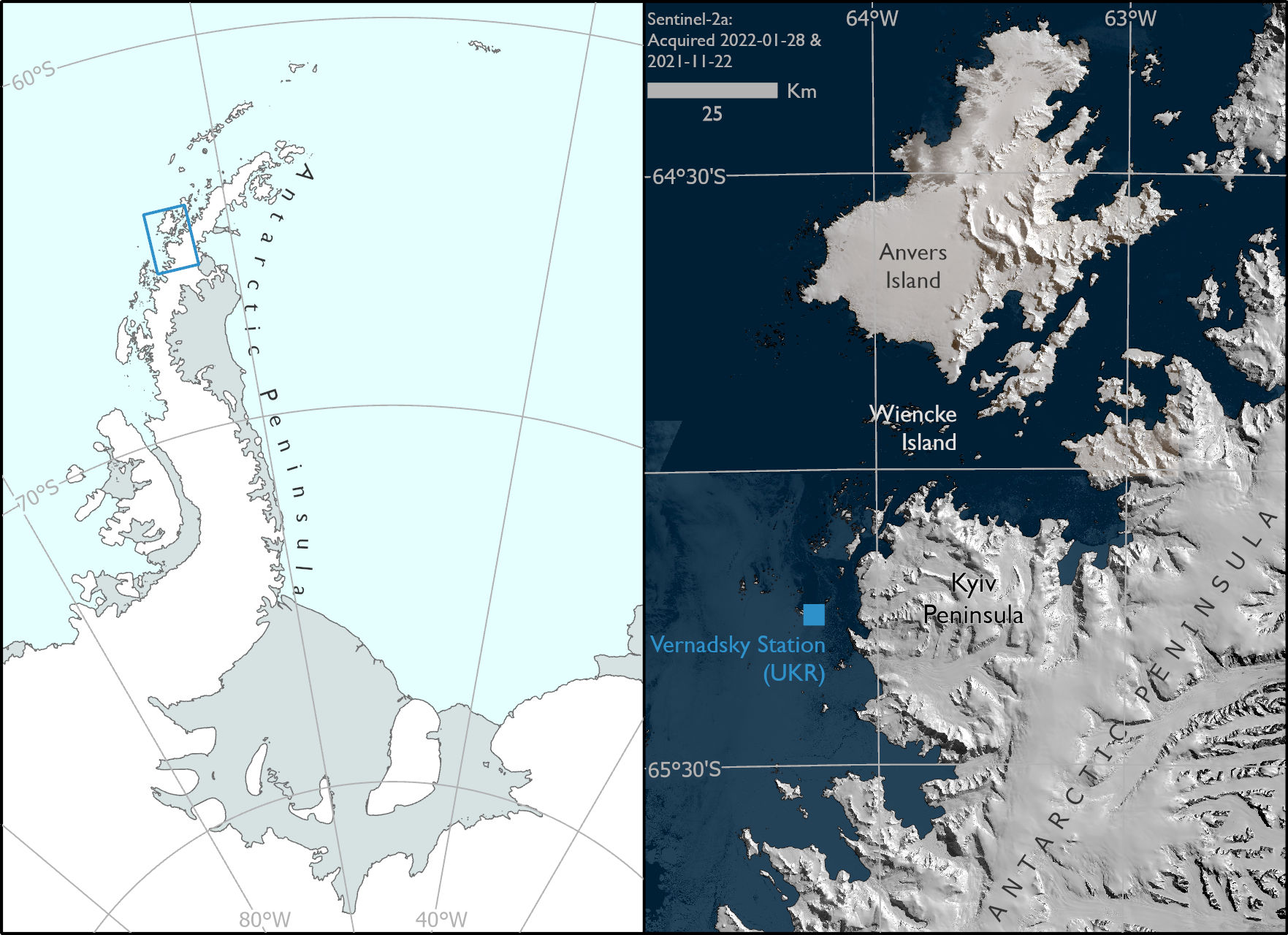This issue we highlight our neighbours on the Antarctic Peninsula: Akademik Vernadsky Station on Galindez Island, operated by Ukraine. Previously UK’s Faraday station for almost fifty years, it was handed over to our polar colleagues in 1996. This is the only Ukrainian Antarctic station and is named after mineralogist Vladimir Vernadsky, first president of the National Academy of Sciences of Ukraine. Nearby, the Kyiv Peninsula is named after the capital city of Ukraine, in connection with the Ukrainian Antarctic base.
Vernadsky Station supports a wide range of scientific activity and operates year-round, with twelve wintering staff. Over summer the station supports up to twenty-four staff members at a time. This station has the longest continual meteorological observations on the continent (logged daily since 1947), and scientists based there study biological, geophysical, geological, processes.
The Noosphere icebreaker (previously the UK’s RRS James Clark Ross) set off on its first expedition from Odesa to Antarctica in January this year. The term Noosphere was popularised by Verdansky himself, and described as the development of humankind’s rational activity in biospheric development.
